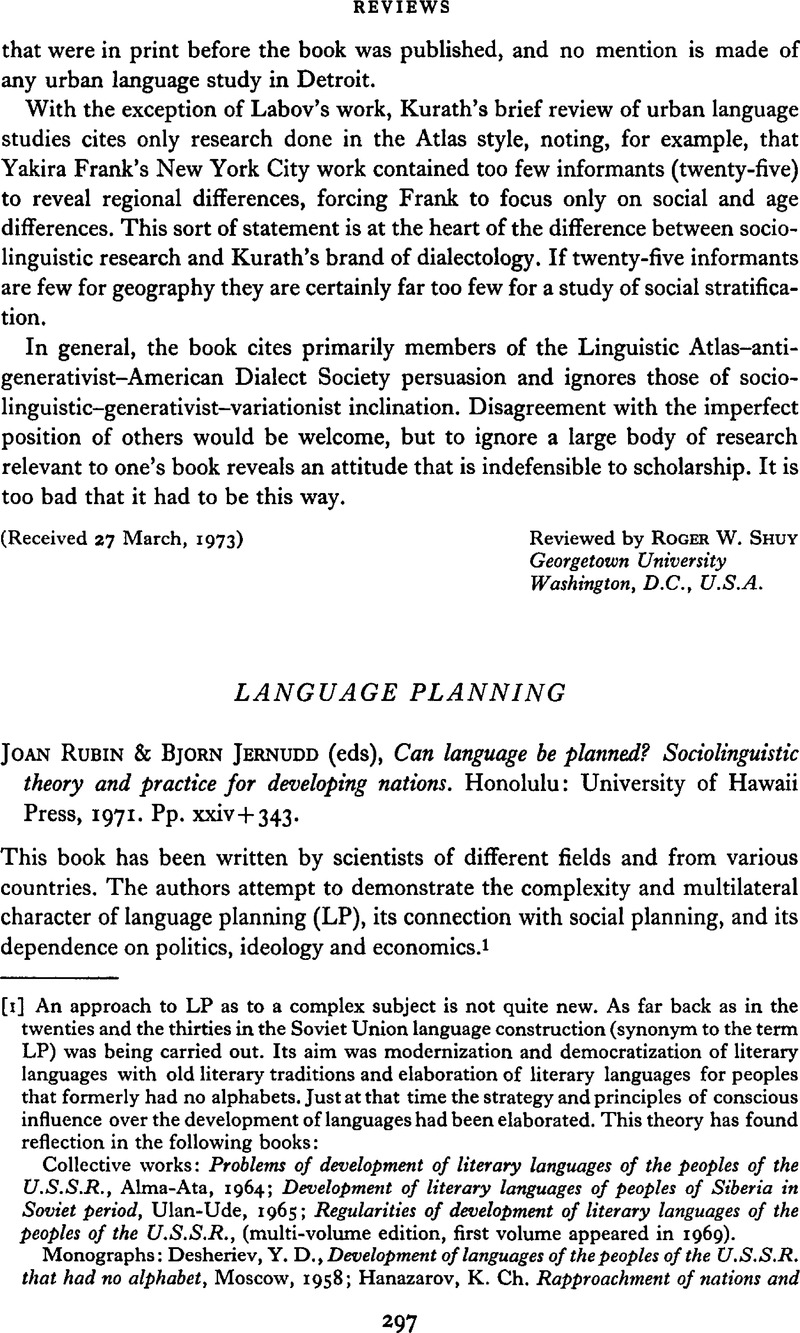Article contents
Language Planning - Joan Rubin & Bjorn Jernudd (eds), Can language be planned? Sociolinguistic theory and practice for developing nations. Honolulu: University of Hawaii Press, 1971. Pp. xxiv+343.
Review products
Published online by Cambridge University Press: 18 December 2008
Abstract

- Type
- Book Review
- Information
- Copyright
- Copyright © Cambridge University Press 1974
References
[1] An approach to LP as to a complex subject is not quite new. As far back as in the twenties and the thirties in the Soviet Union language construction (synonym to the term LP) was being carried out. Its aim was modernization and democratization of literary languages with old literary traditions and elaboration of literary languages for peoples that formerly had no alphabets. Just at that time the strategy and principles of conscious influence over the development of languages had been elaborated. This theory has found reflection in the following books: Collective works: Problems of development of literary languages of the peoples of the U.S.S.R., Alma-Ata, 1964;Google ScholarDevelopment of literary languages of peoples of Siberia in Soviet period, Ulan-Ude, 1965;Google ScholarRegularities of development of literary languages of the peoples of the U.S.S.R., (multi-volume edition, first volume appeared in 1969).Google Scholar Monographs: Desheriev, Y. D., Development of languages of the peoples of the U.S.S.R. that had no alphabet, Moscow, 1958;Google ScholarHanazarov, K. Ch.Rapproachment of nations and national languages in the U.S.S.R., Tashkent, 1963;Google ScholarDesheriev, Y. D., Regularities of development and interaction of languages in Soviet Society, Moscow, 1966;Google ScholarBeloded, Y. K., Development of languages of socialist nations of the U.S.S.R., Kiev, 1969.Google Scholar
[2] One feels uncomfortable for the reputable scientist when on page 18 one comes across a statement about the so-called ‘Russian hegemony’ in the Soviet Union and Eastern Europe. The Russian language does no enjoy any privileges. It is not the obligatory state language. Alongside it, the languages of other numerous nations and peoples are used and developed, these nations and peoples mastering the Russian language as a means of inter-nation communication quite voluntarily. The relations between the socialist countries of Eastern Europe and the Soviet Union are based on socialists internationalism which implies actual equality and the respect of each other's interests. These principles exclude both ‘Russian’ and any other ‘hegemony’.
- 1
- Cited by


